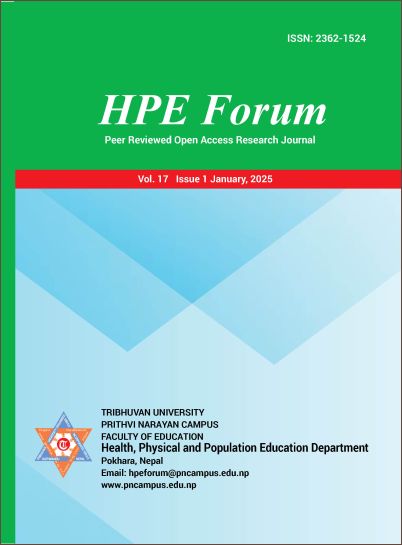Review of Master Level Health Education Curriculum of Tribhuvan University: Advanced Health Education (H. Ed. 515)
DOI:
https://doi.org/10.3126/hpef.v17i1.76512Keywords:
curriculum, critical analysis, strength and weakness, students' interest, capacityAbstract
The curriculum is a study program designed to achieve the aim of education. Review means trying to discover specific study programs' strengths and weaknesses. This article review the Master's level health education curriculum (HEd. 515). This course enhances students' advanced knowledge and in-depth understanding of health education. The curriculum is analyzed using Tyler's model, elements of curriculum that are objectives, contents, learning strategies, and evaluation. The article is based on a descriptive study design. Secondary sources of data are mainly used to Review the curriculum, and one focus group discussion was conducted to assess students' responses. It was found that the objectives and contents are related to each other. Contents are more relevant and almost contemporary in health education. The focus is given to foundations and theories of health education. Students' oriented teaching, like presentation, pair and share, brainstorming, and project work-specific techniques, are applied. Internal and external evaluation approaches are used to evaluate students. Curriculum development is more challenging because facts change daily, so curriculum designers should consider contemporary contents and the voice of the students to provide life-skill-based, student-friendly education. For the proper implementation, discussion and intensive training programs should be provided to its stakeholders.




